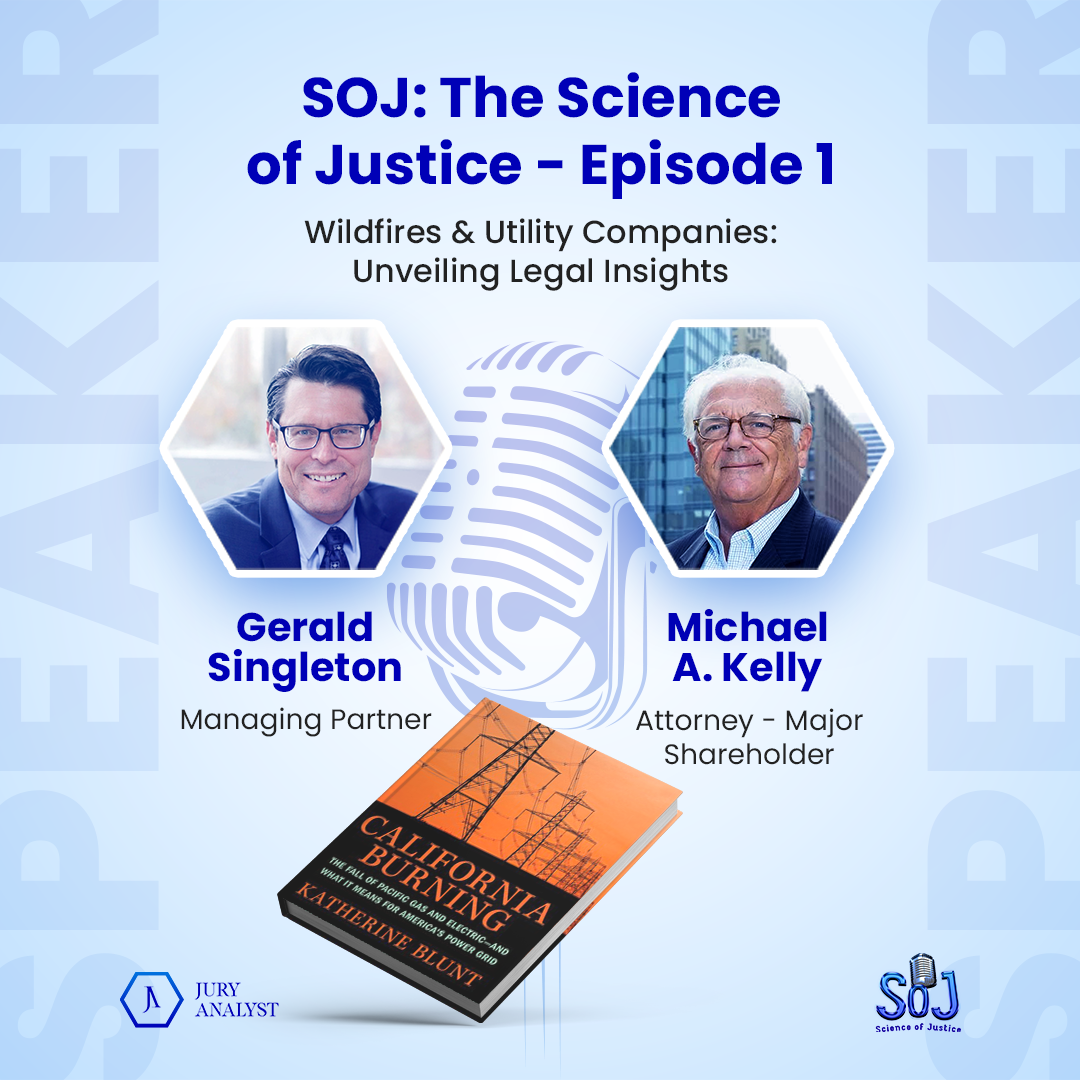Wildfires & Utility Companies: Unveiling Legal Insights
We wanted to reach out and share some exciting news about our recent podcast episode on wildfire litigations. In this episode, we explore the complexities of seeking justice for fire-related claims, drawing insights from our discussion with two esteemed experts in the field: Mike Kelly and Gerald Singleton.
During the episode, we also touch upon our guest author Katherine Blunt’s recent book on California Burning: The Fall of Pacific Gas and Electric and What it Means for America’s Power Grid. This book provides a comprehensive analysis of the wildfire crisis in California and sheds light on the challenges faced by victims and the legal strategies employed in these cases.
Furthermore, we discuss the unfortunate recent Maui fire, which serves as a stark reminder of the past incidents involving PG&E. Mike Kelly and Gerald Singleton, both accomplished plaintiff attorneys and experts in fire litigation, share their valuable perspectives on the nature of the claims, the evidence required, and the potential legal strategies involved in these types of cases.
Mike Kelly, based in San Francisco, played a pivotal role in negotiating the $13.5 billion resolution of the 2017 wine country fire victim attorney lawsuits against PG&E. Gerald Singleton, on the other hand, is a nationally recognized expert in utility-caused fires and has represented over 12,000 victims of utility fires in California and Oregon.
During the podcast, Mike and Gerald discuss the most common legal claims filed in connection with the California wildfires, the challenges in proving liability, and the various types of damages sought by the victims. They also address the complexities surrounding bankruptcies in these cases and the potential solutions that can be explored.
While bankruptcy laws present significant challenges for victims seeking compensation, Mike and Gerald provide an essential understanding of how to navigate these obstacles when advocating for the rights of the victims. They also discuss the evolving trends in the law and the need for reform to ensure fair and just outcomes for all parties involved.
This podcast will give you a deeper understanding of wildfire litigations and the legal landscape surrounding these cases. The expertise and experiences shared by Mike Kelly and Gerald Singleton offer important revelations that will benefit anyone involved in or interested in this area of law.
Some behavioral aspects to consider:
The Psychology of Victim Compensation
Emotional Impact of Perceived Injustice: When victims feel they are not adequately compensated, it can lead to feelings of injustice and betrayal. This perceived injustice can exacerbate the trauma of the initial event, leading to prolonged emotional distress. The feeling that one’s suffering is not acknowledged or valued can be deeply wounding.
The Role of Expectation: Victims often have an inherent expectation of fairness. When this expectation is not met, it can lead to feelings of disillusionment and mistrust towards the system. This can further alienate them from seeking legal remedies or trusting in the process.
Comparative Analysis: Victims often compare their compensation to others. If they perceive others as receiving more for similar losses, it can lead to feelings of resentment and further feelings of injustice.
Recommendations for Addressing Psychological Needs: Legal processes should incorporate therapeutic jurisprudence principles, ensuring that the legal process itself does not re-traumatize victims. This includes clear communication, empathy, and ensuring victims feel heard.
Behavioral Economics of Compensation
Loss Aversion: According to behavioral economics, losses loom larger than gains. Victims may focus more on what they’ve lost rather than what they’ve received in compensation, leading to feelings of dissatisfaction.
Endowment Effect: Victims often overvalue what they’ve lost because they owned it, a phenomenon known as the endowment effect. This can lead to them feeling that no compensation is adequate for their loss.
Anchoring Bias: The first number introduced in a negotiation (like a compensation amount) can act as an anchor, influencing subsequent discussions. If victims hear of higher compensations given to others first, they may feel their compensation is inadequate, even if it’s fair.
By understanding the deeper behavioral science aspects of these areas, legal professionals and policymakers can better address the needs and concerns of those affected by disasters and the subsequent legal processes.

